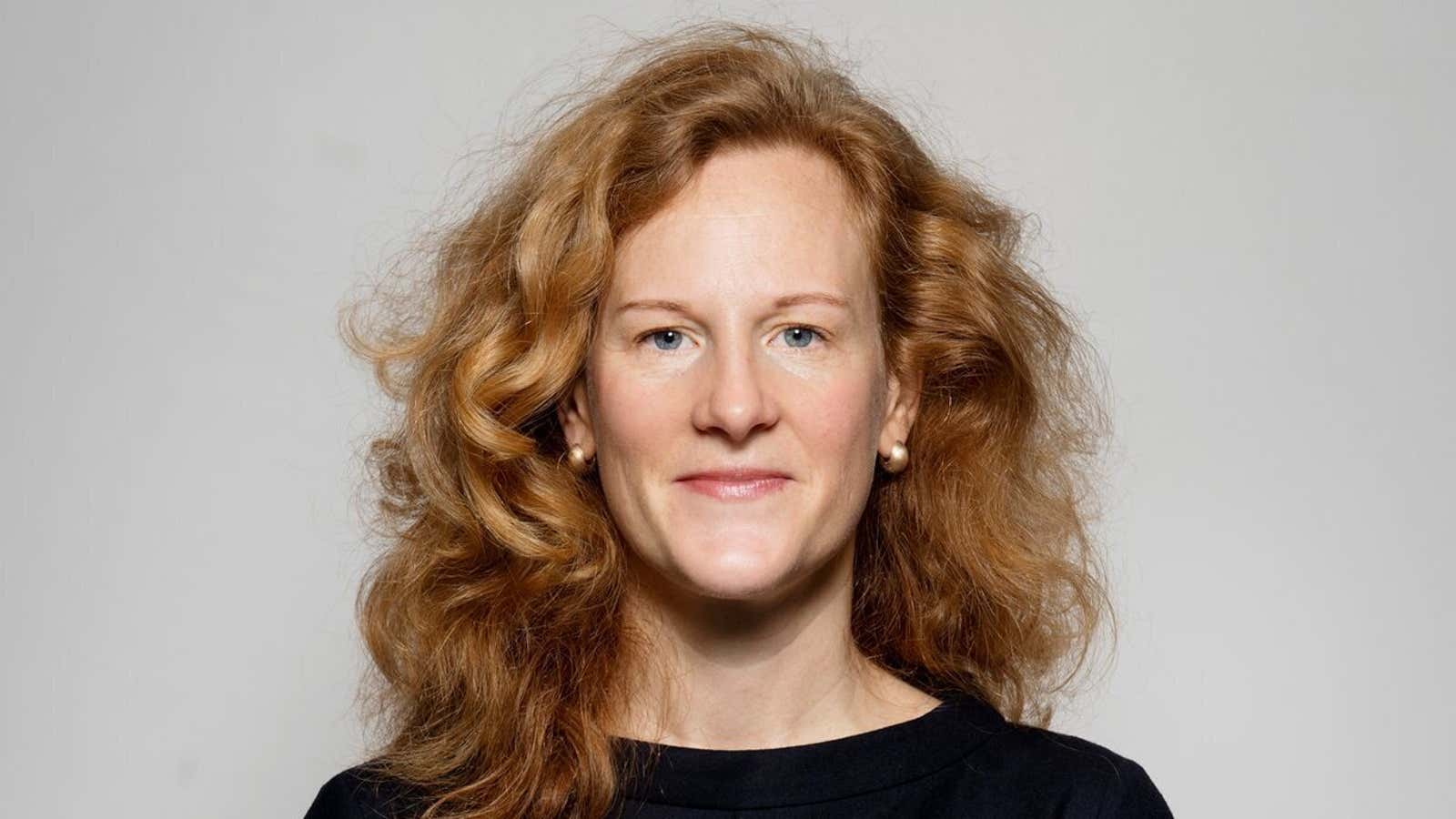For years, ShareAction, a London-based charity, has been undertaking one of the toughest chores in the ESG movement: pushing banks and investment firms to use their clout to address climate change. Catherine Howarth, the group’s CEO, explains how the campaign is finally making progress, and why the next phase is critical.
Quartz: Banks are white-collar businesses that don’t spew carbon emissions into the atmosphere like oil companies or mining outfits. Why go after them?
Howarth: It’s true, banks are basically negligible carbon emitters with their offices, and many have signed up to renewable energy standards and curbing indirect Scope 1 and 21 operational impacts. But the Carbon Disclosure Project has found that banks’ financing activities create 700 times as much climate impact as their business operations. It’s all about Scope 3 for the banks. And they have the power—where banks lend creates the future economy for all of us. So that’s why we are going after banks.
Quartz: This year ShareAction led a campaign to get HSBC, the Anglo-Asian banking giant, to stop financing coal industry clients. On May 28, shareholders overwhelmingly approved a board-backed resolution that commits the lender to meeting that goal by 2030 in major developed nations, and 2040 in the rest of the world. What happens next?
Howarth: We have to watch the bank every centimeter of the way to make sure it follows through. Winning the resolution vote with 99%, that’s great, but the devil is in the details.
The bank’s energy sector policies are going to be published in the coming months. So when we get to see their coal policy, how comprehensive will it be? Will it capture the whole coal supply chain? Are they serious about withdrawing financing for companies in the coal sector that haven’t got credible low carbon transition plans? How early will that happen?
HSBC bankers making day-to-day lending decisions need clear guidelines for what they can and cannot do. If the bank is making a high-level commitment, how will it translate into detailed policies implemented by bankers on the front line dealing with corporate clients? By asking all these questions, we will look to keep the heat on.
Quartz: Big banks are slow to change, and corporations in general have long resisted endorsing activist resolutions. What was the key to your breakthrough with HSBC?
Howarth: HSBC’s first version of its net zero plan was not convincing so we engaged in a fascinating dialogue with the bank and with a group of 16 institutional investors in HSBC, along with more than 100 retail investors. On our side, we had Amundi, the biggest asset manager in Europe, and Man Group, the No. 1 listed hedge fund. These are not mickey mouse players! With us was a group of investors that commanded attention and, to be fair to HSBC, its leadership really engaged with that. They really did listen, and it was a high quality dialogue on both sides. And, yes, there will be some pain in this—the bank is going to have to drop coal sector clients it would probably rather not drop.
Quartz: While climate change tends to dominate the ESG story, Covid-19 underscores the urgency of mental health and social welfare issues in business. Will the same activist approach work on that front?
Howarth: Yes, absolutely it will. Supermarkets, for one, did well in the pandemic yet it emerged was that overweight and obese people are three times more likely to suffer serious illness and mortality related to Covid-19.
We filed a shareholder resolution at Tesco, which has 27% share of the U.K. grocery market, asking it to set health targets for its food and non-alcoholic beverages by 2030. They were shocked by this as you don’t tend to see shareholder proposals here in the UK like you do in the U.S. – but the company’s leadership took it seriously and pledged to raise the portion of healthy foods to 65% from 58% by 2025, an even tighter timetable than we were seeking. As a result, we took our resolution off the table. It was a nice example of the S in ESG landing and making an impact. Like HSBC, we will be watching Tesco to ensure they follow through.
Quartz: Did you enlist shareholders to join you in that campaign?
Howarth: Robeco, the Dutch asset management firm, backed us, along with a range of smaller stockholders. We learned we can build a serious global consortium of investors with an interest in public health issues, just like we see for climate. Off the back of that success, we’re forming a group called Long-term Investors in People’s Health—soon to be launched.
